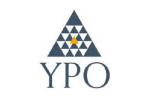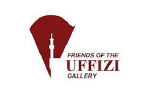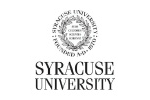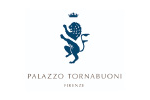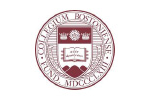



ONLINE HISTORY COURSE
Call the Midwife: Women Healers from the Middle Ages to the Renaissance
LIVE HISTORY COURSE with Dr. Jeremy Wasser
Dates: November 1, November 8, November 15
Schedule: Tuesdays
Time: 5:30 – 7:00pm ET | 2:30 – 4:00pm PT |
10:30pm – 12:00am London
Contact Hours: 4.5 Hours
ONLINE HISTORY COURSE
Call the Midwife: Women Healers from the Middle Ages to the Renaissance
Course Description:
Women are conspicuous by their absence from the annals of medical history. The principal reason for this lies in the patriarchal nature of Western societies from Antiquity into the modern era. Women were, for the most part, strictly forbidden from the formal study of medicine (or any other university discipline). With the possible exception of women healers like Trotula and the other so-called “ladies of Salerno”, we have very few records of women as professors of medicine or as recognized masters of the healing arts from the Middle Ages and Renaissance.
In spite of this millennia-long bias, women have played important roles as healers throughout human history. Working as midwives, herbalists, pharmacists, and practitioners of “folk medicine,” women healers have quite possibly examined and treated more patients than their male counterparts.
Join physiologist and historian of medicine, Dr. Jeremy Wasser, as we redress this gender imbalance in medical history. This course will explore the ways in which women healers were trained, the specific medical specialties in which they worked, and the ways in which they interacted with their patients, especially female patients. We will also take a look at the response of the male medical community to the presence of women healers in their midst, a response that led, for example, to the formalization of midwifery training and the advent of the “male midwife” beginning in the 16th century.
Come along as we “Call the Midwife” and explore the history of women healers of the Middle Ages and Renaissance!
Instructor:
Jeremy Wasser, Ph.D. is an Associate Professor of Physiology at Texas A&M University. Dr. Wasser serves as the program leader for study abroad programs in Germany, focused on the history of medicine, providing future doctors and biomedical science researchers with a foundation in physiology and the medical humanities. Along with his scientific publications he has written and lectured on the culture of disease, the history of public health and health policy, the history of human experimentation, and the role of physiological education in contemplative practices. Additionally, Wasser’s training in opera and theatre inform the unique personas that he creates for lectures in the history of medicine and performances related to science and storytelling.
Virtual Classroom: Full access to an online educational platform with discussion forum, videos of recordings, syllabus, and reading list.
Location: LIVE INTERACTIVE ON-LINE HISTORY LECTURES
Optional Readings:
Readings to be provided to students in PDF format prior to the beginning of course.
Complete syllabus will be provided upon registration.
LECTURE 1 – WOMEN HEALERS AS MIDWIVES
– Tuesday, November 1
What were the origins of midwifery in the Middle Ages and Renaissance? At a time when women were not allowed medical training, how was it that many women healers gained the right to practice in matters of women’s health, particularly pregnancy and childbearing? The thinking of the ancients on the human body (the microcosm) and its relationship to nature and the universe (the macrocosm) is critical to answering these questions. In this first lecture, we will see how social, philosophical, and medical ideas from the ancients set the stage for women healers to take the lead.
LECTURE 2 – WOMEN HEALERS AS PHARMACISTS
– Tuesday, November 8
What would it have been like to be a female patient during the Middle Ages and Renaissance? What diseases afflicted women and what were options for relief or cure? The second lecture will explore the role of women as herbalists, alchemists, and pharmacists during this historical period.
Because there were still massive limitations on what physicians were able to actually accomplish for their patients, real knowledge and the practice of women apothecaries provided real remedies whose cure rates were as high as most contemporary medical procedures and surgeries. Actual medicines and therapeutic interventions in the form of tinctures, distillations and medicines were available to the patients of these female practitioners. Although many women were skilled in making medicinal home remedies, we will also explore the impact of convent pharmacies in the understanding and practice of medical care.
LECTURE 3 – WOMEN HEALERS AS DOCTORS AND SURGEONS
– Tuesday, November 15
While midwives played a significant in providing healthcare in the Middle Ages and through the Renaissance, in this final lecture, we follow the path of several women figures in who have been designated as Medica. We will note their unusual training and how a particular school of medicine in the city of Salerno, Italy played a key role in the medical training some of these notables received. We will also explore other women who played a role in the field of medical education; both in the practice of nursing and among those who were both physicians and professors. Central to our discussion of health, healing and disease during this time period is the increased influence of medical anatomy and the understanding of gender differences in relation to health and healing.
As always, art and music will provide the lens to view the medical and scientific landscape of this time.
Jeremy Wasser, Ph.D. is an Associate Professor of Physiology at Texas A&M University. Dr. Wasser serves as the program leader for study abroad programs in Germany, focused on the history of medicine, providing future doctors and biomedical science researchers with a foundation in physiology and the medical humanities. Along with his scientific publications he has written and lectured on the culture of disease, the history of public health and health policy, the history of human experimentation, and the role of physiological education in contemplative practices. Additionally, Wasser’s training in opera and theatre inform the unique personas that he creates for lectures in the history of medicine and performances related to science and storytelling.






